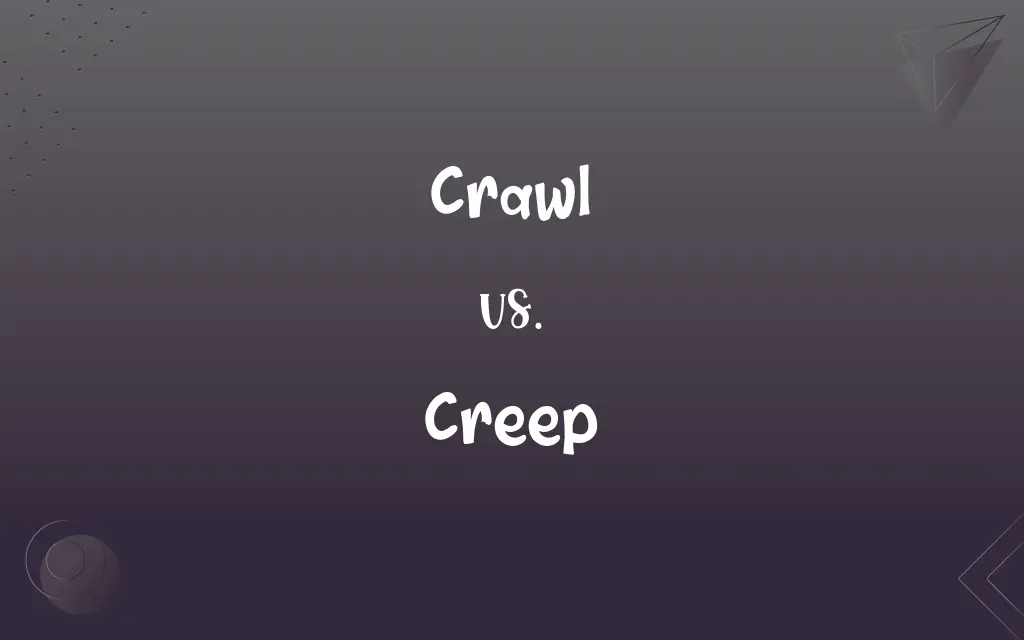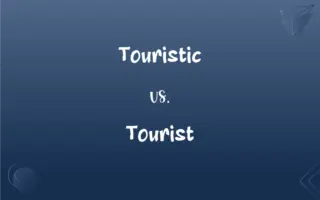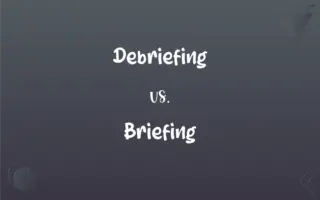Crawl vs. Creep: What's the Difference?
Edited by Aimie Carlson || By Harlon Moss || Updated on November 2, 2023
Crawling is moving on hands and knees, while creeping involves moving slowly and quietly, often close to the ground.

Key Differences
Crawl typically refers to moving on one's hands and knees with a relatively quicker pace, like a baby or a soldier under obstacles. Creep, in contrast, implies a slower, stealthier movement, often with a connotation of caution or fear.
Crawling is a term frequently associated with the developmental stages of an infant, indicating a form of locomotion before walking. Creeping, while similar in that it can describe slow movement on all fours, often carries an element of gradual or barely noticeable movement and can apply to inanimate objects like fog or shadows.
In the digital world, 'crawl' is used to describe how a search engine indexes the web, methodically and systematically. 'Creep', in a metaphorical sense, can describe a gradual and almost imperceptible change or increase over time, such as the creeping inflation rate.
The verb 'crawl' can also describe a slow progression or a place being full of a particular thing, like a street that crawls with traffic. 'Creep', however, may be used to describe a feeling of unease as in "goosebumps crept up his arm," signifying a slow, gradual spread.
Crawling can be seen as a necessary precursor to walking, symbolizing growth and development. Creeping, on the other hand, might often be associated with a sense of intrusion or violation, as in the phrase "the vine crept over the fence," suggesting an encroachment on another space.
ADVERTISEMENT
Comparison Chart
Movement Type
Quadrupedal and relatively faster
Slower, stealthier, and often closer to the ground
Developmental Context
Associated with an infant's developmental stage
Can describe subtle, gradual movements
Emotional Connotation
Neutral, a natural phase of growth
Can imply caution, fear, or subtle change
Application in Technology
Used to describe systematic indexing by search engines
Rarely used in a technological context
Figurative Use
To indicate fullness or slowness
To suggest an eerie or gradual progression
ADVERTISEMENT
Crawl and Creep Definitions
Crawl
To swim using the crawl stroke, a form of freestyle.
He could crawl across the pool in under 30 seconds.
Creep
To change slowly over time, often unnoticed.
The shadow of the tree crept across the lawn as the sun moved.
Crawl
To progress slowly or with difficulty.
Traffic was crawling along the highway during rush hour.
Creep
To move slowly and quietly, especially to avoid being noticed.
He crept out of the house to avoid waking his parents.
Crawl
To move on hands and knees or by dragging the body close to the ground.
The baby learned to crawl before walking.
Creep
To cause someone to experience a feeling of fear or disgust.
The way the portrait's eyes seemed to follow her gave her the creeps.
Crawl
To be covered with or full of something.
The old wall crawled with ivy.
Creep
To happen or develop gradually or insidiously.
Inflation began to creep up unexpectedly.
Crawl
For a search engine to systematically visit websites to index content.
The Googlebot crawls the web to find new pages.
Creep
A technique used in various games or sports to approach stealthily.
He used the creep to get closer to his opponent in the game.
Crawl
To move slowly on the hands and knees or by dragging the body along the ground; creep
The baby crawled across the floor.
Creep
To move with the body close to the ground, as on hands and knees.
Crawl
To advance slowly, feebly, laboriously, or with frequent stops
We crawled along in traffic until we reached the highway.
Creep
To move stealthily or cautiously.
FAQs
Is creeping necessarily slow?
Yes, creeping is characterized by slowness.
Can adults crawl?
Yes, adults can crawl for exercise or in certain situations.
Are crawl spaces meant for standing?
No, crawl spaces are typically too low to stand in.
Does creep always imply negativity?
Often, but not always; it depends on context.
Do all animals creep?
Not all, but some animals use creeping as a form of movement.
What defines the movement of crawling?
Moving on hands and knees or close to the ground.
Can machines crawl?
In a sense, robots or drones might crawl in certain applications.
Is it common for fear to creep on someone?
Yes, fear can often creep up, meaning it arises gradually.
Can creeping be used to describe plants?
Yes, plants can creep as they grow across surfaces.
Is crawling a developmental milestone?
Yes, it's a key stage in infant development.
Can data on the internet crawl?
Data doesn't crawl, but web crawlers index data.
Can you feel a creep of emotion?
Yes, emotions can creep up on you, meaning they develop slowly.
Can time creep?
Time can't physically creep, but it can seem to pass very slowly.
Does creep have a botanical meaning?
Yes, it describes the slow growth habit of some plants.
Is crawl stroke in swimming fast?
Yes, it's often the fastest swimming stroke.
Can crawl be used as a noun?
Yes, as in a bar crawl.
Can insects crawl?
Yes, many insects crawl as a means of locomotion.
Is creeping a good strategy in hide-and-seek?
Yes, it helps to move unnoticed.
Is creep a positive word when used in gaming?
It can be, depending on the context within the game.
Can crawl refer to a slow internet connection?
Yes, it can be used to describe very slow loading times.
About Author
Written by
Harlon MossHarlon is a seasoned quality moderator and accomplished content writer for Difference Wiki. An alumnus of the prestigious University of California, he earned his degree in Computer Science. Leveraging his academic background, Harlon brings a meticulous and informed perspective to his work, ensuring content accuracy and excellence.
Edited by
Aimie CarlsonAimie Carlson, holding a master's degree in English literature, is a fervent English language enthusiast. She lends her writing talents to Difference Wiki, a prominent website that specializes in comparisons, offering readers insightful analyses that both captivate and inform.































































